Khmer Traditional Wedding (Cambodia)
Traditional wedding of the Khmer in Cambodia
I witnessed a beautiful traditional wedding of my Khmer friend, Vathakna Pannkhem to his sweetheart, Kheang in Kandal province in Cambodia sometime in March 2016. It was another enlightening event I was very proud to be part of. I brought along my son, Adam and good friend, Juliana and her children to be part of the merry-making occasion.
Here I re-told the story….
Weddings in most places can be anywhere from plain to elaborate depending on how deep your pocket is. In whatever way it is celebrated, it is one of the most treasured moments in any family regardless of creed, financial status and the like.
In Cambodia as with most Asian nations tradition plays key role in wedding ceremonies. However, there is strong spirituality and sense of sacredness to the wedding held in Phnom Penh in a small village in Kandal province. It is reflected through the ceremonial rites portrayed in each of the event and each ceremony would take up about an hour long to complete.
Aside being spiritual, the whole ceremony seems very lively with full of colours, rich in traditional values and unending arrays of food right from breakfast till dinner as though there is some kind of food festival going on in the village.
A journey to Kandal province, an outskirt of Phnom Penh where the home of the beautiful bride named Kheang Chhorvoin was, took a group of guests from neighbouring country about four hours by road from the capital city, not to mention there is a river to cross before reaching the destination where it took about 20 minutes of transfer time from one end to the other (including vehicle!). A humble wooden platform did the magical work of transferring passengers and automobile to other side. However, only a maximum number of 5 people and a car are allowed per transfer with the fee of USD5 per trip. Crossing a normal-sized river is not a problem but in Cambodia, the river is as big as the sea!
Since it was draught season, trees and plants alongside the road were covered with thick dust, all over from trunk to the leaves; one almost cannot recognise whether it is mango or lemon tree. No matter what the temperature is the wedding had to move on.
Vathakna Pannkhem, in his early 30s was about to marry her sweetheart Kheang in colourful traditional ceremonies which lasted for 2 and a half consecutive days.
On the eve of the wedding, relatives of the bride gathered at her parents’ house preparing gifts, wedding cakes, fruit baskets to be used in the procession the following day. Everyone was engrossed with tasks assigned to them, not realising there were foreign guests among them on the eve of the wedding.
The typical wedding of Khmer people are with loud music being played almost the whole day and night and surprisingly, none of the villagers complain anything about having sleepless night (due to the noise), perhaps they do not sleep at all when there is wedding going on in their area!
Their wedding cake is in the form of glutonious rice wrapped in banana leaves and guests would taste some slices on the eve of the wedding as part of the tradition.
Meanwhile, the bride and the groom-to-be were seated on the floor inside the house facing the monks who were chanting continuously for the blessing of the marriage. The couple were dressed in matching silk traditional costume and properly seated and attentively listening to the chants proclaimed by the monks. When the Buddhist priest started to say something, everyone’s head was down. Some moments the bride and the groom were seen shedding tears, perhaps tears of joy. He seemed to give some important advice not only to the couple, also to the guests who were witnessing the event.
Monks are seen as the medium to ‘connect’ the living and the dead. The Khmer believe that their present life is still strongly attached with their ancestors in some ways or another, therefore they would continue seeking advice and protection from the ‘them’.
As in this function, the ancestors of the couple were being ‘informed’ of this important occasion through the priest and required their full blessing to be granted upon the couple. They said through the intersession of the ancestors that the life of the newly wedded will be prosperous, harmonious and no evil spirit will come to disturb the marriage.
Strong sense of unity between the couple and their ancestors are felt by everyone especially for the newly wedded couple when the Buddhist priests and monks continuously do their chanting and singing aloud calling those who are in ‘heaven’ to come down and join in the happy occasion.
“We pray to our ancestors for protection and guidance in everything we do in life. In this special occasion of my brother’s wedding, we ask our great grandparents and those who have left much earlier for their full blessings and so that this marriage will last as long as they live,” explained Sophiaroth whose brother, Vathakna was to marry Kheang in just a moment.
Gifts and fruit baskets which were prepared the night before, were used in the procession the following day which would be the first event of the day. It took almost the whole villagers as part of those in the parade. The groom would lead the procession together with his family members, Buddhist priests, invited guests and practically everyone in the vicinity as part of the entourage. The parade can be as long as few hundred kilometres long.
They would carry trays of gifts and fruits as they marched in however in a relaxing ambience. The bride would not be seen in the parade as she would be waiting for her husband at the front of her house together with the rest of the family members.
The journey of walking around the village is a symbol of love and journey for the couple where they would continue to lead life together and if they stumble any untoward incident, they will face it together, calmly.
Vathakna explained that a procession is important in a marriage, as it is a symbol of harmony to notify the villagers that someone has finally taken the girl as his bride and that he would be accepted in the village as part of the family.
“This procession is like our journey as husband and wife where we must face any occurrence together. It also indicates to the villagers that I am the chosen one to be with the bride and that nobody else is allowed to take my love away from her from now onwards,” said Vathakna shyly.
Before meeting up with the bride, the troupe will visit a shrine place not far from the bride’s resident where the groom and the Buddhist priest performed another ceremonial rites praying for their ancestors to continue protecting them especially in the first morning of the special occasion.
“We regard our ancestors like our god who protect us for as long as we live. We believe that their spirits are all around us, watching over us and guarding our life from any harm and danger. In fact in this special day of mine, I stronger feel their presence and I am sure that they will continue to bless my marriage and grant happiness to me and my new bride,” added Vathakna.
Upon uniting the groom and bride (after the parade), the ceremony did not end there. There were more rites coming up after the wedding breakfast.
Fila Heng, a tour guide from Siem Riep, Cambodia shared that the family of the newly wedded couple are so overwhelmed with the presence of the guests that they prepare all three meals in the day (breakfast, lunch and dinner) for the guests to enjoy.
“This is the tradition we have here, where we serve guests with all three important meals of a day because the family of the bride and groom are so excited and enthralled with the whole thing and they believe the happiness are to be shared with the guests and those who witness in the marriage by providing special dishes for everyone.
It is as though they do not want the ceremony to end, so they let all invited guests to be around till dusk. The merry-making continues till everyone is too tired to take another dance, hahaha,” Fila related.
“We are very rich in culture, traditions which may become an attraction to the tourism industry in times to come,” said Chan Khim, a businessman from Siem Reap, who was one of the guests too.
Soon after the first meal of the day was over, guests were asked to sit at the open area at the front of the bride’s house as another ceremonial rites was about to begin.
This time it was the ‘hair cutting’ ceremony of the bride and groom. A giant look-alike scissors were brought in and presented to the priest where another chanting was said before passing it to the family members. Then they would start ‘cutting’ the hair of the couple.
“This hair cutting ceremony is another important event as it is a way to discard all evil in the body of the couple. By cutting the hair, the evil will also be taken out from their body and that bad spirit will not stay in their mind,” explained Sophiaroth.
There was actually no hair cutting done but a symbolic gesture to indicate that the rites is being carried out.
Soon after it over, an ‘angel’ from heaven appeared before the couple and the rest of the guests, dancing and chanting all over the place. The ‘angel from heaven’ is performed by someone who is closed to the family members and who has some knowledge about family life. He would then talk about the good things being a couple and what life is about and so on.
The ‘angel’ also warned that after tying the knot, it must not be untied. There were some laughter drawn from the audience as he explained further about marriage life.
Attending such a wedding in a rustic surrounding in Cambodia is a life-time educational experience. Despite the poverty of the countryside, everyone in the village gave their time, effort and personal resources to make the wedding a memorable event for the family.
The family values and the traditions are still very much intact in the life of the Khmer. To them, praying to their ancestors is a must-do in any important occasions, where it becomes their stronghold to move on with their life.
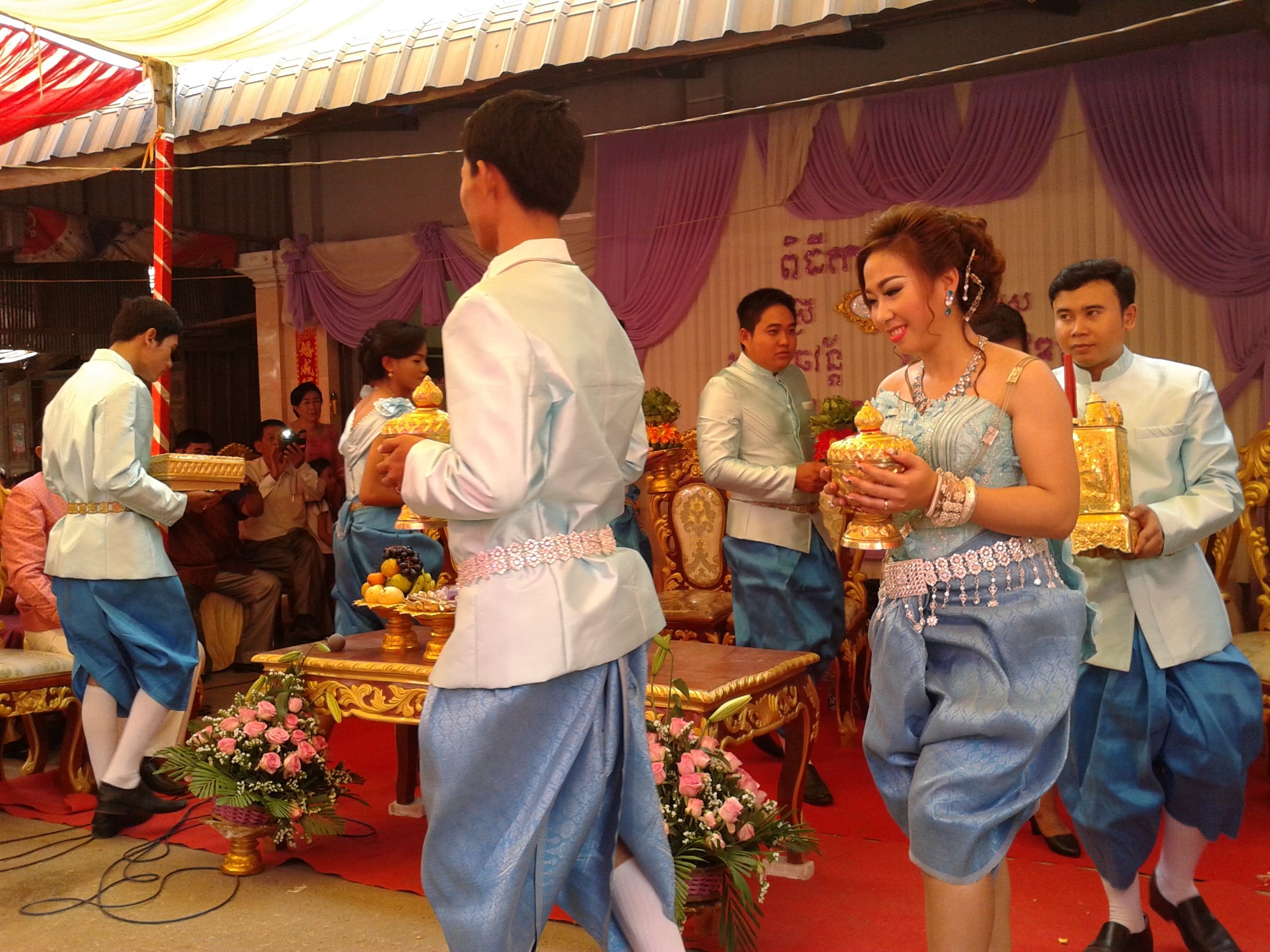
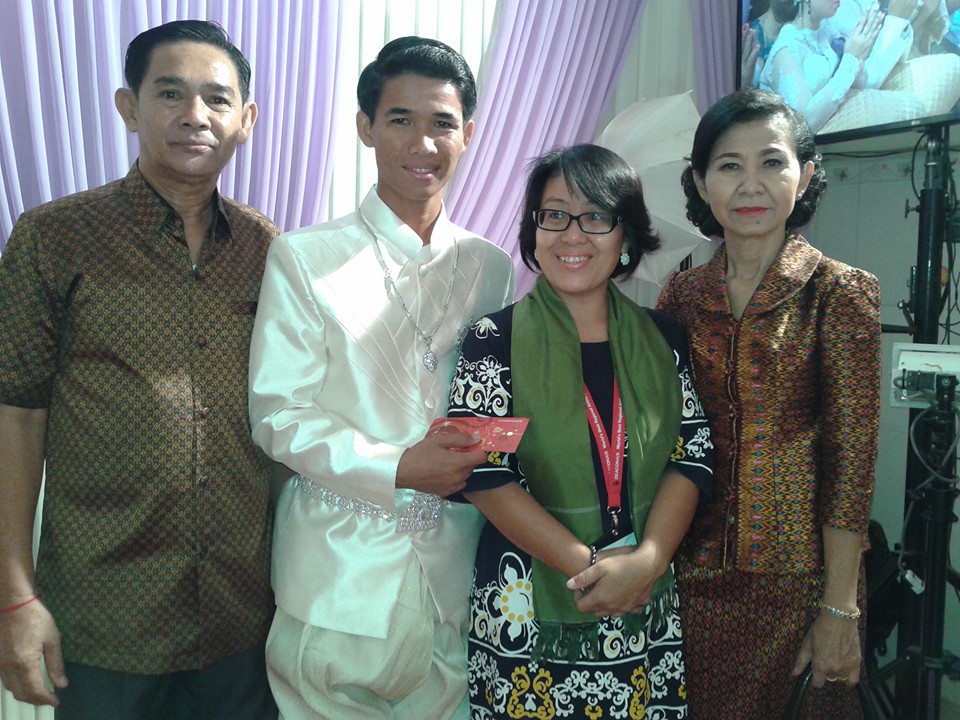
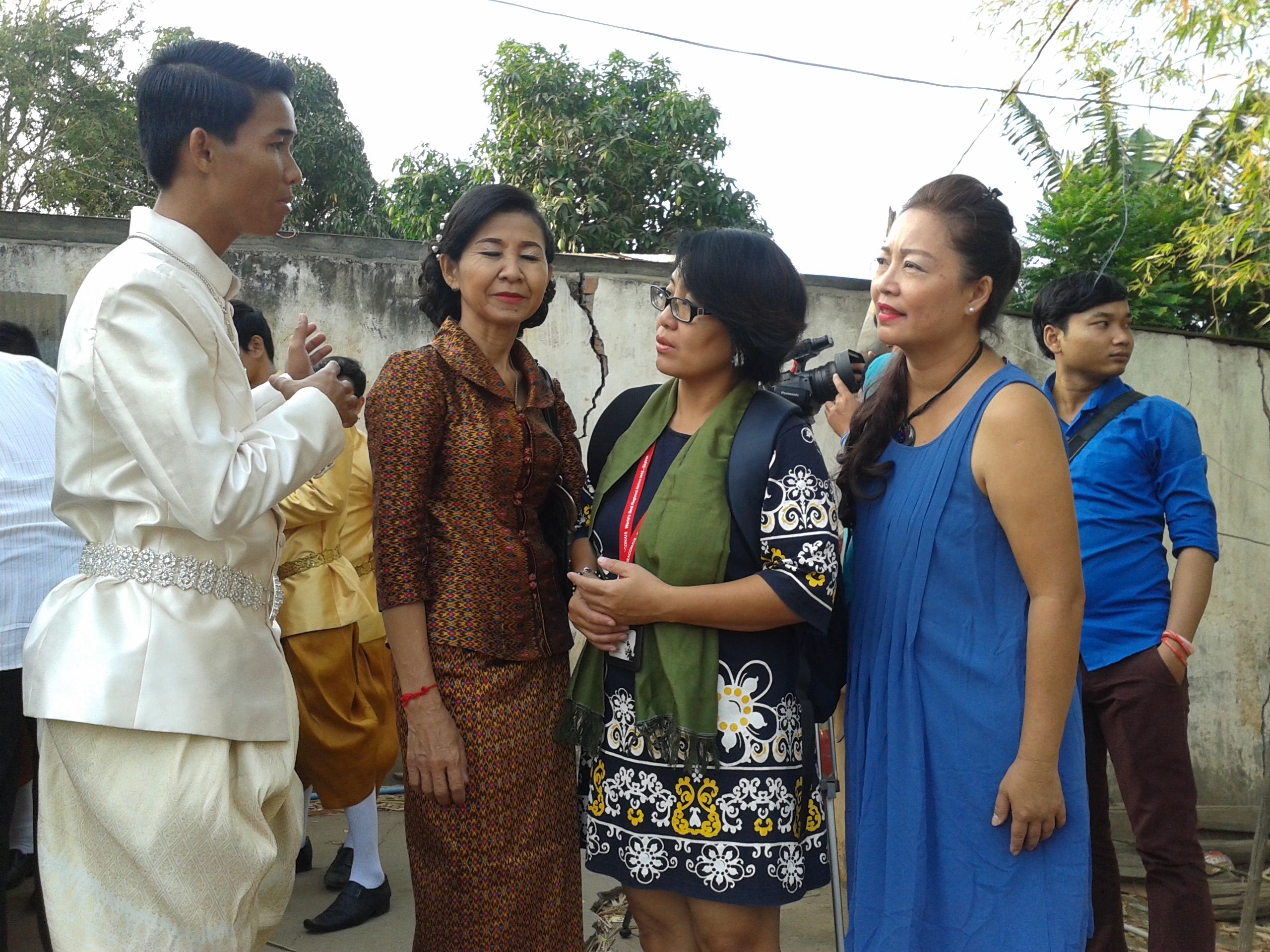
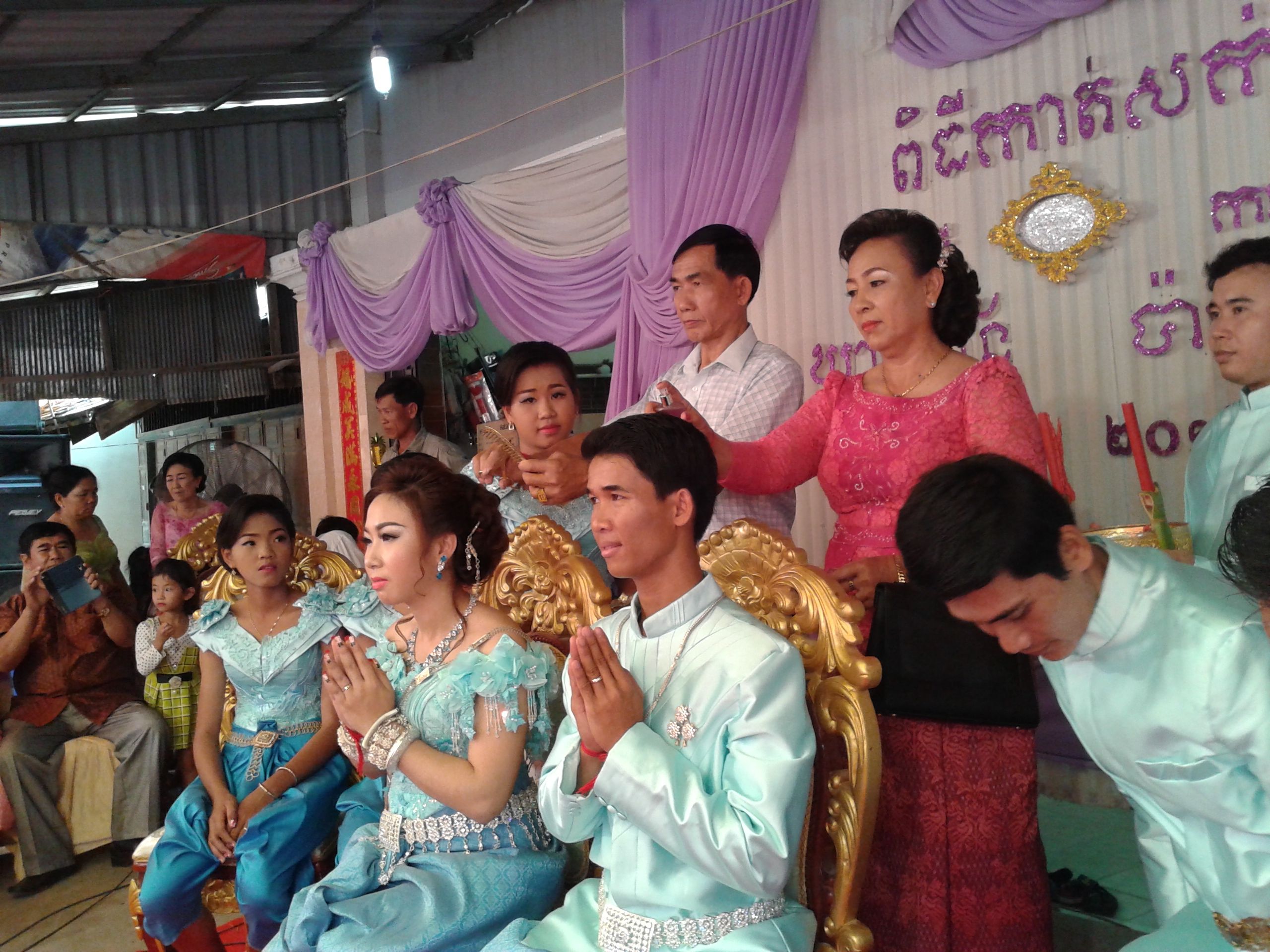
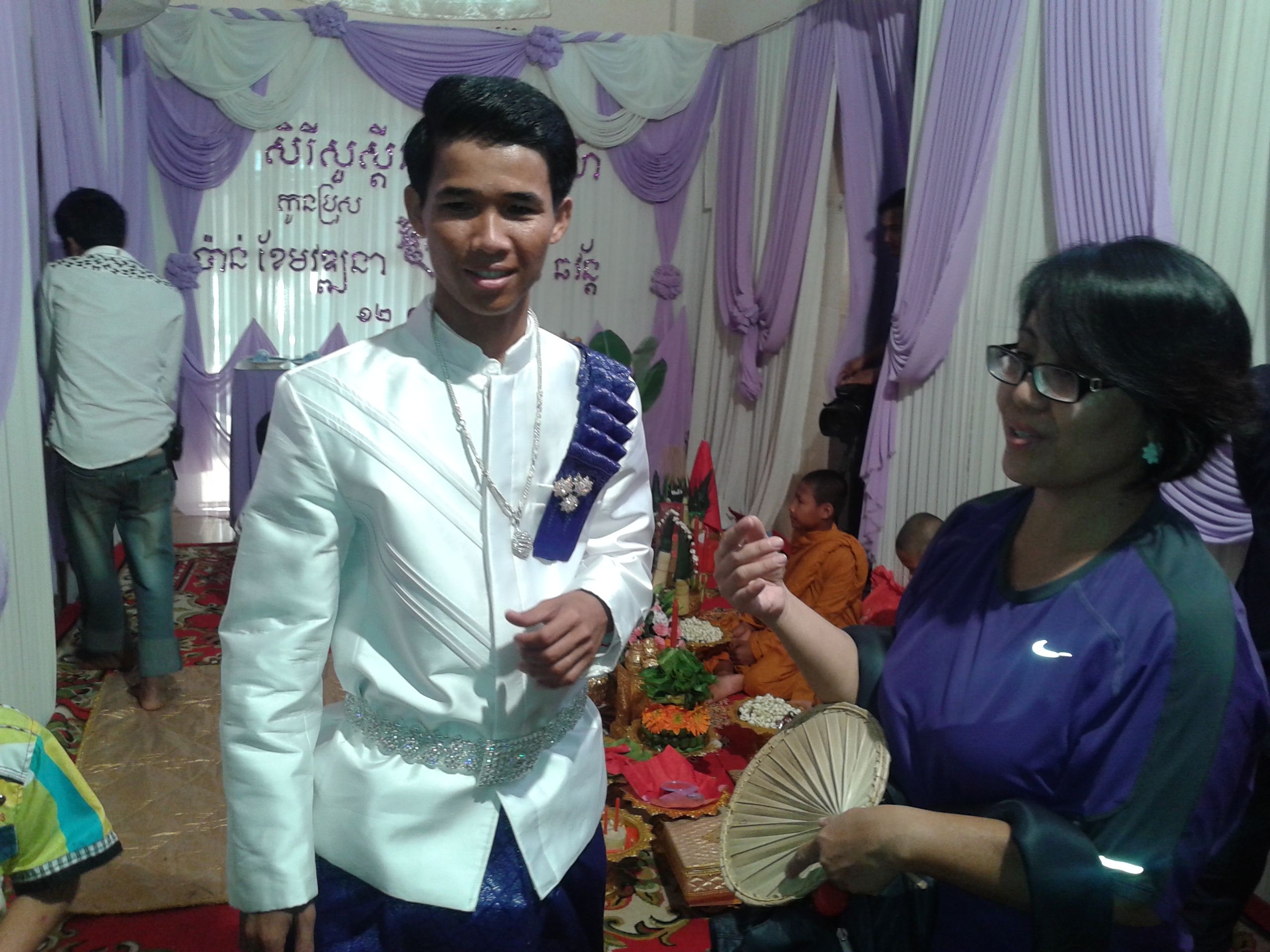
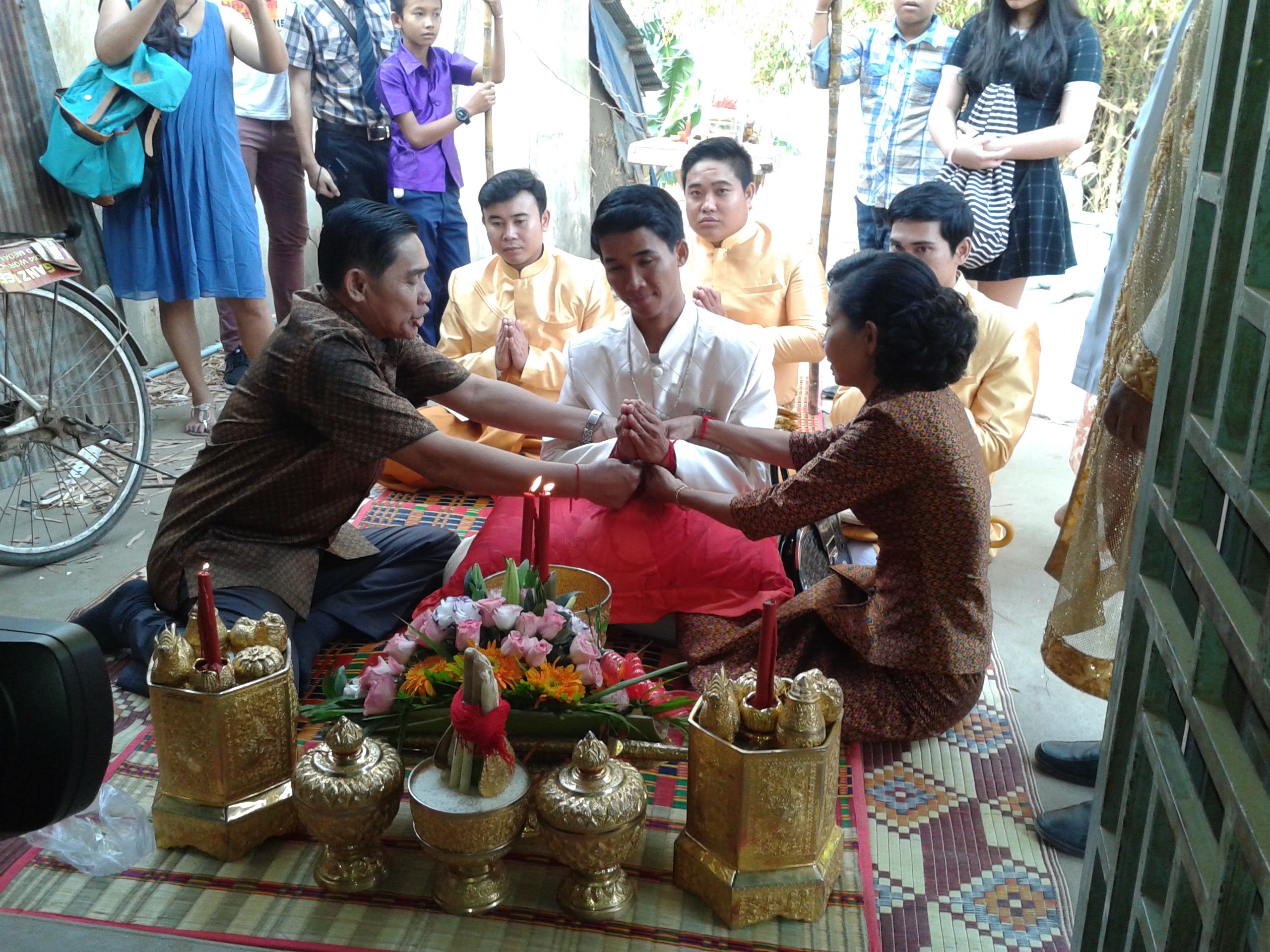
Congrats @lorenabinisol for the beautiful write-up about Khmer Traditional Wedding ceremony. This reminds me of few traditional wedding functions I attended in some other countries many moons ago.
Congratulations @lorenabinisol! You have completed some achievement on Steemit and have been rewarded with new badge(s) :
Click on any badge to view your own Board of Honor on SteemitBoard.
For more information about SteemitBoard, click here
If you no longer want to receive notifications, reply to this comment with the word
STOPThanks for this wonderful article.